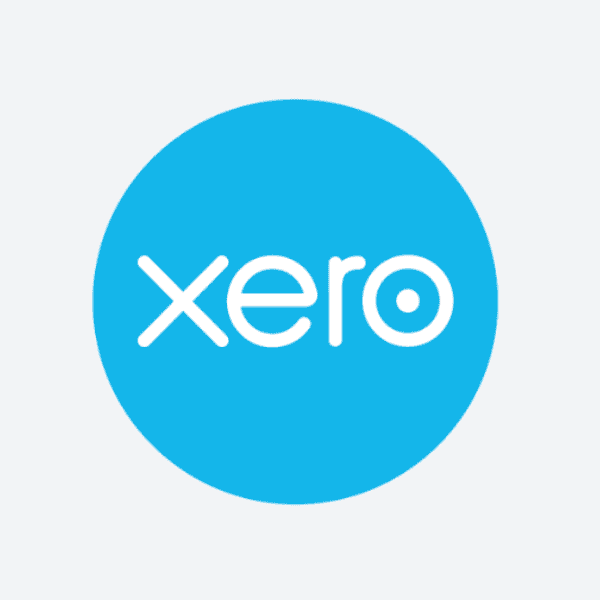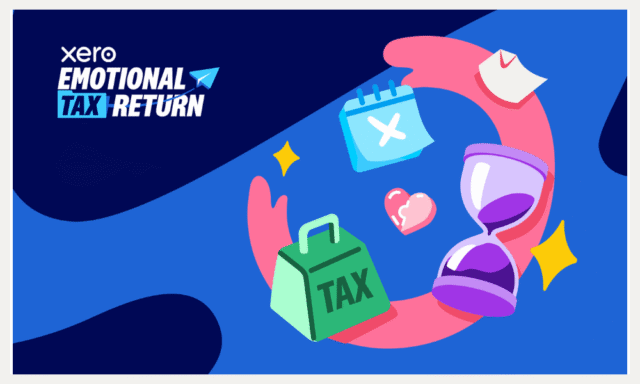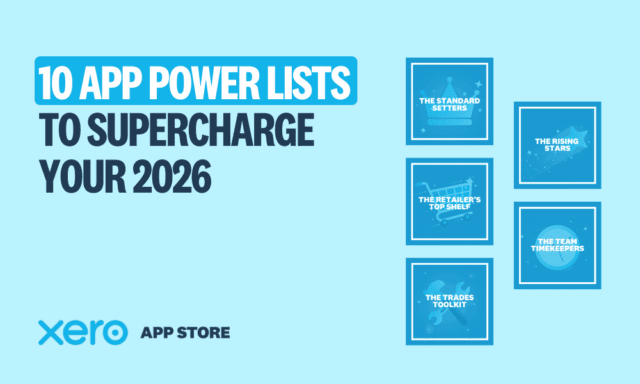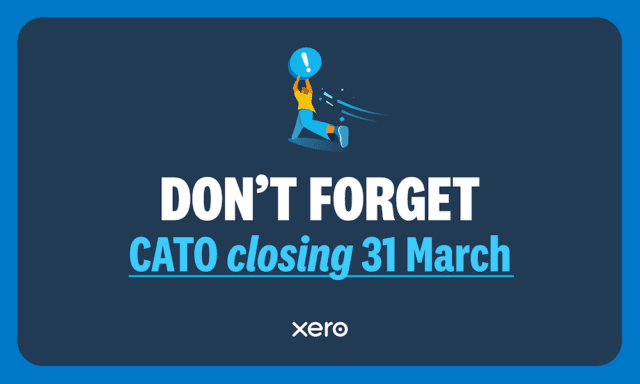
Jan 19, 2022
“Is sustainability good for business?”
Last updated: Mar 8, 2024
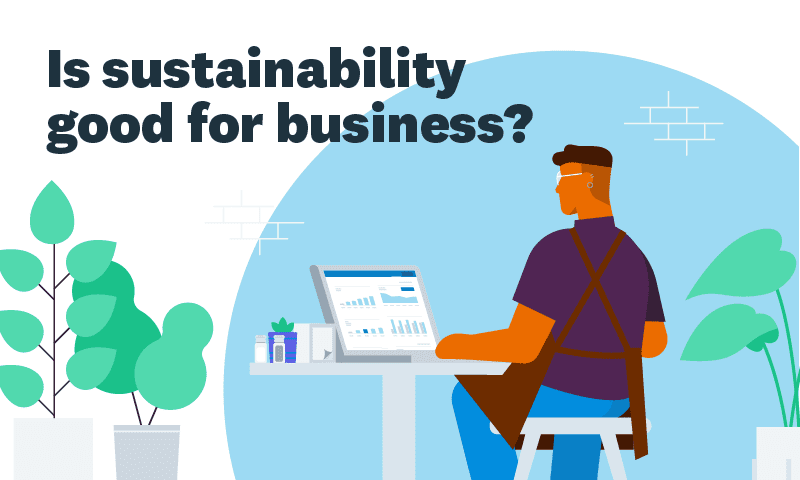
Guest article written by Larissa Gardner. Larissa has qualifications in psychology, criminology, PR, advertising, writing and publishing, she probably could have become the next Patricia Cornwell. Instead, she’s a Content Marketing Strategist at Young Folks – a marketing agency and Xero customer – that specialises in helping to grow brands who are solving today’s problems for a better tomorrow.
Is sustainability good for business? If you posed this question at Young Folks HQ, you would be hit with a quick-fire, unanimous and enthusiastic “Absolutely!” from the team.
Every day we work with beautiful and sustainable brands who are achieving incredible results by focusing on their social and environmental practises.
According to a study commissioned by Xero, 68% of small businesses want to improve their sustainability practises.
But, the question is: How is sustainability specifically good for business?
What does sustainability in business mean?
Harvard Business Review defines sustainable business practises as those that:
- at a minimum, do not harm people or the planet and at best create value for stakeholders and
- focus on improving environmental, social, and governance performance in the areas in which the company or brand has a material environmental or social impact (such as in their operations, value chain, or customers).
At Young Folks, we take this definition one step further. Inspired by John Elkington’s triple bottom line (also known as: people, planet and profit), where sustainable businesses earn profits by being socially responsible and protecting the planet’s resources; we measure the success of a sustainable business through its impact on people, planet, their profits and their overarching purpose of doing “the right thing” in these three areas.
What are the benefits of going green?
There are five key benefits that you can reap by building in sustainable practises into your business:
- Accelerated innovation
- Risk management
- Customer acquisition and retention
- Talent attraction and staff retention
- Financial gain
Accelerated innovation
An awesome by-product of investing in sustainability for businesses is the increased capacity for innovation and the rewards of constantly striving to change things for the better.
There are many different ways being green drives companies to keep innovating and evolving their product, production methods or service offering. These include using new technology to minimise waste during production, redesigning a product to incorporate the latest advancements in recycled materials, or investing in faster, more energy-efficient equipment.
The legends at Great Wrap recognised the need for food wrap that doesn’t contribute to the plastic pollution crisis. They’ve produced the world’s first compostable cling wrap, made from potato waste and biopolymers that break down in a compost pile in 180 days. As such an innovative bunch, they continue to strive to improve their product formula and will soon extend their range to include commercial cling wrap and pallet wrap.
Continued innovation, driven by sustainability efforts fosters more efficient production. It also conserves resources and streamlines employee tasks, and by doing so reduces overall running costs and maximises profits.
Risk management
Investing in environmental initiatives safeguards a business’ ability to operate long term, particularly if their supply chain relies on natural resources. These initiatives can be as simple as composting your kitchen waste, installing motion sensors on your office lighting, or even switching to renewable energy.
This is especially relevant for businesses in agriculture, textile, food and beverage industries. The impacts of climate change, like increased natural disasters such as floods, bush fires and drought, have the potential to negatively impact growing conditions and seasons, increase pests and disease, and decrease crop yields.
Flooding in Thailand in 2011 had a devastating effect on the nation’s two primary industrial sectors (automotive and electronics), along with the whole economy. The floods led to the shut down of many factories such as Honda Motors, Sony and Western Digital. The finance ministry estimated the cost to Thailand’s economy at around $2.2 billion.
Customer acquisition and retention
Customers today expect a lot more from brands in terms of transparency, responsibility and sustainability.
Research into consumer behaviour shows, in the last 12 months:
- 1 in 3 consumers in the UK have stopped purchasing certain brands or products because they had ethical or sustainability concerns about them
- 61% of UK consumers have limited their use of single-use plastics
- 55% of Australian consumers are ‘conscious consumers’ who make purchase decisions based on their environmental values, ethics or fair trade
- 2 in 5 consumers are willing to pay more for ethical and sustainable products in Australia
- 24% of Australian consumers find it difficult to identify whether a brand operates ethically or sustainability
Jess Rix, a shopping expert from PayPal, says “Aussies are putting their money where their mouth is when it comes to environmentally and socially sustainable products. Every buying decision has the power to change the world a little and we’re beginning to see a shift as
73% of global consumers are willing to change consumption habits to lessen their negative impact on the environment.”
Having well publicised and documented sustainability practises are key for businesses to get a competitive advantage, attract new customers and keep existing customers coming back.
Talent attraction and staff retention
It makes sense that employees who feel proud and engaged are more likely to stick around when they are working for a company that is proactive in terms of a sustainability strategy.
A report by the Society for Human Resource Management found that companies that implement sustainability programs have 55% higher employee morale, 43% more efficient business processes and 38% improved employee loyalty.
Employees enjoy being involved in sustainability initiatives, training sessions and activities that help galvanise team relationships and culture. When employees are asked for their input on what areas of the business can be improved, amazing insights and huge value can be gained.
In 2016 after being inspired by Unilever’s sustainability slogan – ‘Small actions can make a big difference’ – employees at an English, Unilever-owned tea factory suggested the size of their paper tea bags could be reduced. The move saved the company just shy of $75,000 in the process and reduced their paper waste by 9,300 kilograms.
A survey by Swytch found that 75% of millennials would take a pay cut if it meant working at an environmentally responsible business and 40% would select one job over another because of a company’s sustainability practises.
During the recruitment process, you’re more likely to attract like-minded environmental innovators if you make your commitment to sustainability widely known. Having a reputation as a green business shows you have a bigger purpose beyond making a profit. This is extremely attractive to job hunters wanting to work somewhere value-aligned and contribute to something that’s having a positive impact on the world.
Financial gains
While rolling out green initiatives can come with an initial financial outlay, you’ll most likely save money in the long term.
Examples of this can be installing solar panels to power the office or factory space, exploring creative ways to put waste products or offcuts to good use or investing in the development of more environmentally friendly materials.
The latest figures from the electricity market show that Australian businesses using rooftop solar save up to 31% on their energy costs compared to businesses without solar.
Another example is Nike’s Flyknit, which has generated the sportswear giant over $2 billion revenue since its launch in 2012. Shoes made with the innovative Flyknit technology create 60% less scrap waste, require minimal labour, have reduced waste by 3.5 million pounds and transitioned from virgin yarn to 90% recycled polyester. That’s the equivalent of 182 million plastic bottles diverted from landfill.
Being a sustainable business can also open up a world of investors, as well as government grants and funding to help businesses, like yours, become more sustainable.
How can I make my business more sustainable?
There are so many things businesses can put in place to make their operations and offering more sustainable and to lessen negative environmental impacts. Here are a some ideas to help get you started with your sustainability initiatives:
- Offer remote working and consider a four day working week to reduce employees’ carbon footprints
- Opt for virtual meetings instead of travelling to meetings
- Reduce air travel where possible to lessen emissions associated with doing business
- Encourage green commuting options among employees such as carpooling, biking and public transport
- Introduce composting and improve recycling at the office and during manufacturing (for product-based businesses)
- Make your workplace completely paperless – think paperless billing, receipts and keep all company documents in the cloud
- Opt for recycled office supplies like toilet paper, green cleaning products, tissues, pens and bin liners
- Create a sustainability group to develop new green initiatives and hold the business accountable
- Offer team volunteer opportunities for environmental causes
- Run regular sustainability surveys and forums where employees, customers and other stakeholders can share observations, ideas and thoughts on where the business can be more sustainable
- Consider passive solar design for your business premises to reduce heating and cooling costs
- Invest in renewable energy or shift to a green power option
- Assess and offset carbon emissions
- Donate to environmental organisations
- Choose green hosting for your website
- Delete old emails and unneeded files – you’d be shocked by the amount of carbon produced while storing old emails
- Opt for plant-based or recycled materials for production and packaging, where possible
- Investigate an ISO 14000 certified factory if your business manufactures products
- Consider your products’ end of life and build circularity into your offering (for example, offer lifetime free repairs or a recycling program)
At the end of the day, businesses stand to benefit in numerous ways by investing in sustainability. It may take dedication, drive and a willingness to evolve to go green but the rewards in terms of business growth, productivity, staff morale and longevity are well worth the effort.
